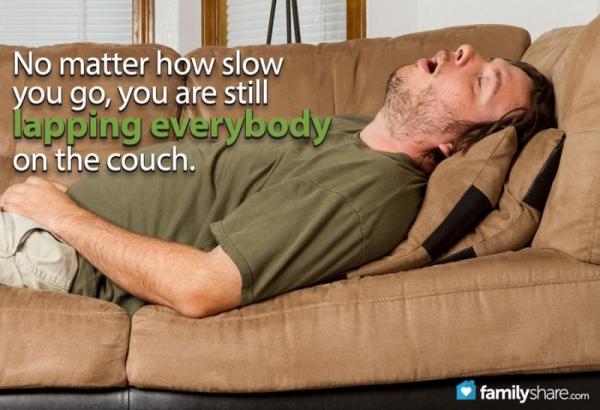
The keys to having more energy are eating right and exercising. Don't you wish there were another way? Me too!
Like many people who have struggled with weight - really struggled - I've learned a few things over the years that have helped me.
Real usable, deployable healthy energy comes from having your weight at a reasonable level so that moving isn't exhausting and having the strength and stamina required to get up and go. If your weight isn't in a healthy range, more exercise alone won't bring the energy you want; if your weight is ideal, but you never exercise, you will still struggle to find the energy you need.
At one point, I weighed 80 pounds more than I do now. Can you imagine carrying around an 80 pound backpack everywhere you go? That's what I was doing. Despite exercising fairly regularly, I could not do anything vigorously or for a long time. A 3-mile hike nearly killed me.
Here's a four point plan to help you power up for good!
1. Identify a healthy target weight for yourself
Everyone is different; the target weight for you may be different than someone else of your same height. The Federal Government has endorsed the Body Mass Index as a way to help people determine whether or not they are at a healthy weight.
By checking where you are and figuring out where you'd like to be, you can find more energy. My personal experience being obese for much of my life leads me to the conclusion that your weight really works against you when you are in the obese ranges of the BMI chart. If you are merely overweight you won't likely find your weight to be an impediment to energy, nor are the health risks associated with obesity likely to impact you.
2. Find a diet that works for you
Because everyone has different tastes, appetites and lifestyles, no diet is likely to work well for everyone. I've used Weight Watchers with success, but that may not be the right system for you.
The critical observation I made after years of following Weight Watchers was that left to my own appetite, uncontrolled by conscious decisions to forgo eating when I shouldn't, I would simply eat too much. Hence, recording what you eat (I like the Weight Watchers points because I can track them in my head) all day, every day is critical, otherwise - if you're like me - you'll eat more than you realize. I can easily gain one pound per week when I don't watch what I eat, resulting in almost five pounds per month - fifty pounds per year. Don't let diet system advertisements fool you; to lose weight you have to be hungry sometimes.
3. Work out three times per week
Even before your weight drops into the healthier overweight category, you should begin exercising three times per week for at least 30 minutes. Your goal should be to burn at least 300 calories in your workout. For most people, this requires a vigorous aerobic exercise on the treadmill, elliptical machine or a bike. If you burn 300 calories or more in 30 minutes, you'll work up a real sweat. If the machine you use says you burned 300 calories and you don't have sweat pouring off you, the machine probably lied.
Another important way to measure your workouts is your heart rate. You want to get your pulse into the aerobic zone for at least twenty minutes during your workout. An inexpensive heart rate monitor can dramatically improve your workouts. As your weight declines, increase workouts. Once your weight is below the obese range on the BMI chart, you can and should increase your workouts to get your body accustomed to vigorous exercise.
4. You want your body to be comfortable at work, doing something
You want to become uncomfortable on the sofa. To do this, you likely need to increase your workouts to about five hours per week (I work out Monday through Friday for about an hour). Rotate what you do a bit to involve more muscle groups and to give yourself a pseudo rest. For instance, I run three days per week, bike one and swim one so I never run two days in a row. Your workouts should leave you tired, but within a few hours you should feel more energy as a result.
By following this simple four-point plan, you can not only find more energy, but also improve your health generally, reducing your chances of developing high blood pressure or diabetes.

